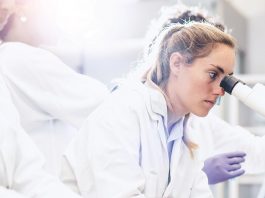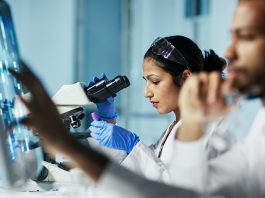Newly developed machine learning algorithms will potentially advance the search for natural product drugs for cancers, viral infections, and other conditions.
Created by Carnegie Mellon University researchers, the novel machine learning algorithms are adept at matching a microbe’s metabolites signals with its genomic signals; this information helps to distinguish the ones that respond well to a natural product, enabling scientists to determine which natural products can be manufactured into a drug.
Their research is published in Nature Communications.
Bahar Behsaz, a project scientist and lead author of the research, said: “Natural products are still one of the most successful paths for drug discovery. We think we’re able to take it further with an algorithm like ours. Our computational model is orders of magnitude faster and more sensitive.”
The researchers verified their machine learning algorithms by scanning the genomic data and metabolomics of 200 strains of microbes, of which they successfully recognised hundreds of natural product drugs, in addition to four that display promising attributes for future drug development. The marque creation of the team’s machine learning algorithms is NRPminer, proficient in locating non-ribosomal peptides (NRPs), a vital aspect of natural products that are incredibly hard to detect and are used to make antibiotics, clinically used medications, and anticancer drugs.
Hosein Mohimani, an assistant professor and head of the lab, said: “What is unique about our approach is that our technology is very sensitive. It can detect molecules with nanograms of abundance. We can discover things that are hidden under the grass.”
The discovery of natural products has led to the development of the vast majority of antibiotic, antitumour, and antifungal medications implemented today, although many of these, just like penicillin, are discovered by sheer luck. Countless global pharmaceutical companies have halted their search for novel natural products, with research being extremely arduous and expensive. However, with these new machine learning algorithms, the financially illogical becomes economical, as useful natural products can be isolated efficiently.
Mohimani said: “Our hope is that we can push this forward and discover other natural drug candidates and then develop those into a phase that would be attractive to pharmaceutical companies. We are expanding our discovery methods to different classes of natural products at a scale suitable for commercialisation.”
The team is now examining four new natural products found from the study, with two recognised to possess potential antimalarial properties.









